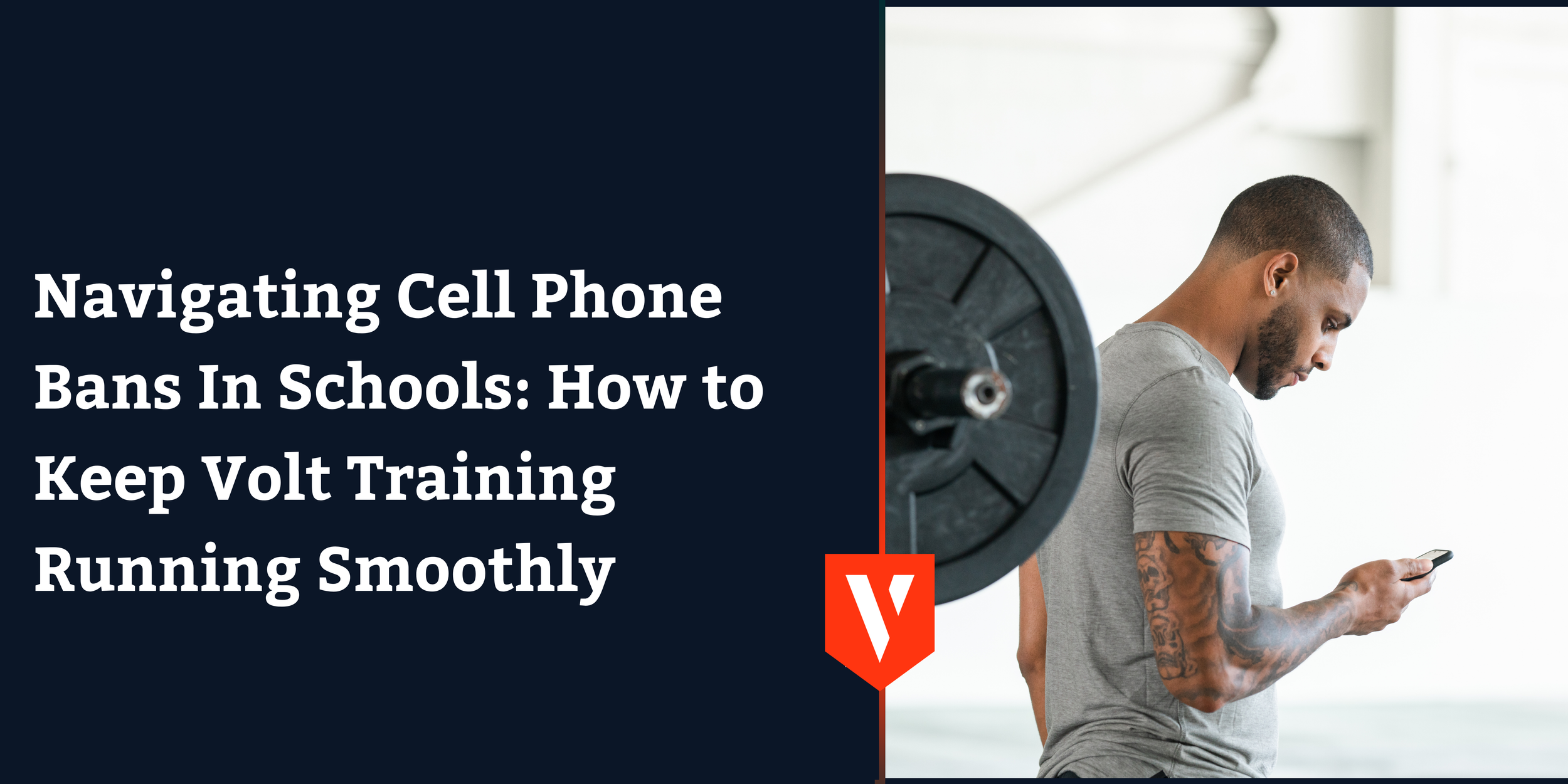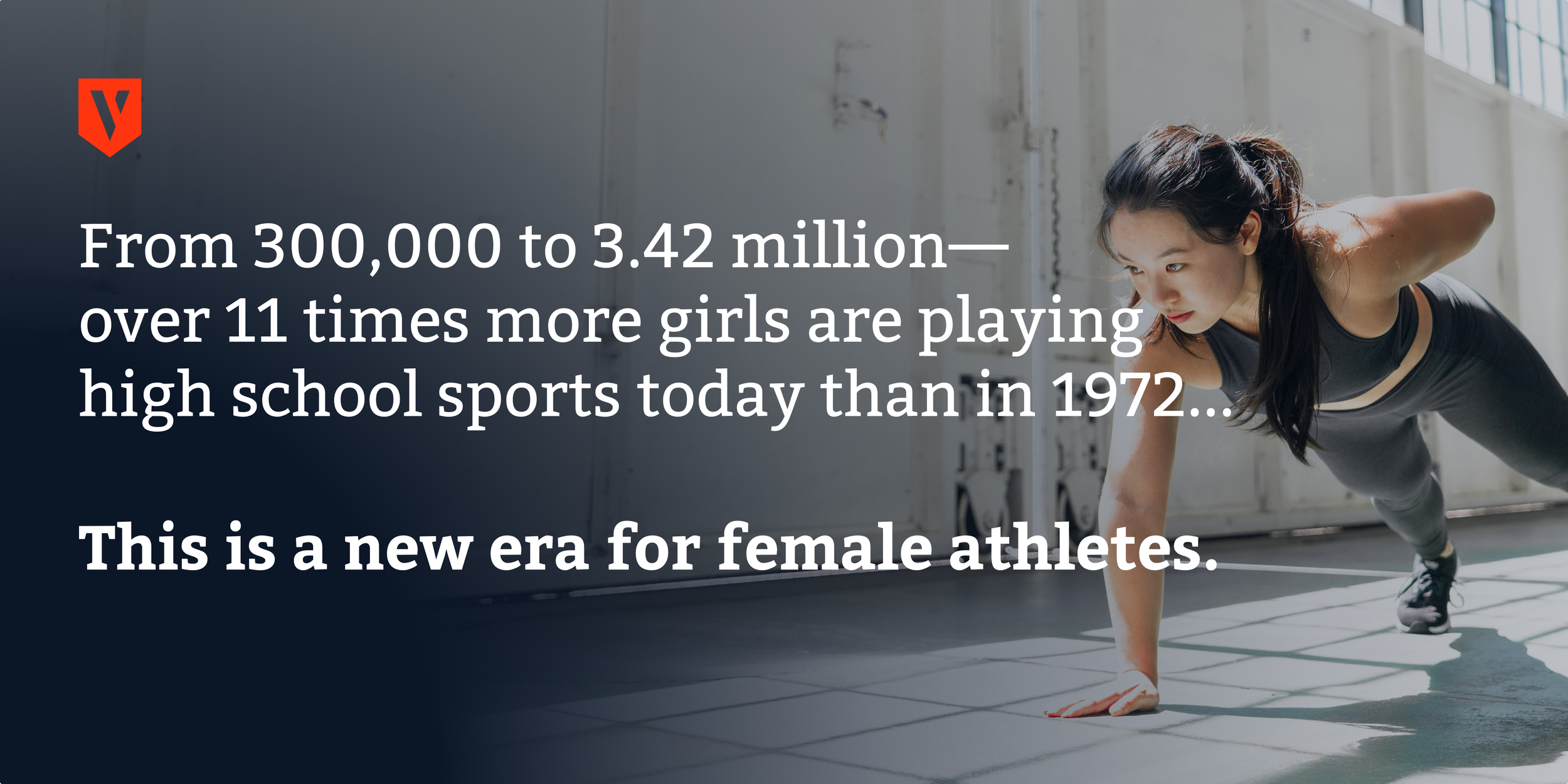Navigating Cell Phone Bans In Schools: How to Keep Volt Training Running Smoothly
/This article from the Volt Athletics team discusses:
How cell phone bans and restriction policies implemented in your school system won’t affect your programs training on Volt athletics. Volt gives you multiple ways to keep training consistent even if phones aren’t present in the weight room.
Clarify policies: Confirm if your school’s ban allows educational exceptions for Volt in the weight room.
Shared devices: Use Volt’s Training Mode on a single tablet or laptop for group sessions.
Printouts: Generate workouts from the coach platform when devices aren’t available.
Plan ahead: Test alternatives early, communicate with athletes, and stay flexible as rules evolve.
Across the country, states and school districts are implementing cell phone restriction policies during the school day. For athletic departments, PE programs, and strength coaches who rely on Volt to deliver training, this shift can feel like a big hurdle. But the good news? You’ve got options. With a little planning, your athletes can keep training consistently, even if their phones are out of reach.
Note: This blog is for informational purposes only and is not intended as legal advice. Always confirm the specific policies that apply to your school or district.
Step 1: Clarify the Restrictions
Not all cell phone policies are created equal. Some states or districts enforce “bell-to-bell” bans, meaning students can’t use their phones from the first to the last bell. Others allow exceptions for educational purposes, or may permit use before and after school hours, which often includes the weight room.
Pro tips:
Talk with your school administration to fully understand the scope of the ban.
Clarify whether using Volt in the weight room counts as an educational exception.
If in doubt, ask for written guidance so you and your athletes are on the same page.
Step 2: Use Training Mode on Shared Devices
If phones are restricted but tablets or laptops are allowed in the weight room, Volt’s Training Mode is your best friend.
With Training Mode, you can:
Log in via the Volt for Coaches app or at app3.voltathletics.com with your coach account.
Set up a single device that multiple athletes can use to complete their workouts.
Keep the training session flowing smoothly without needing every athlete to have a phone in hand.
This option works especially well in team training environments where athletes move through stations or racks together.
Step 3: Go Old School with Printouts
Sometimes the simplest solution is the best one. Volt makes it easy to generate printouts of your team’s workouts directly from the coach platform. Athletes can take a paper copy with them, mark their progress, and turn it in at the end of the session. Athletes can also log their workouts after school as a homework assignment.
Check out this guide to learn more: How do I print my team’s workout?
Printouts are especially useful when:
Devices aren’t available.
You’re running a large group session.
You need a reliable backup option in case of tech issues.
Bonus Best Practices
Plan ahead: Don’t wait until the first day of enforcement to figure out your approach. Try out Training Mode or printouts in advance.
Communicate clearly: Let athletes know what tools they’ll be using to access Volt, and train them on the process.
Stay flexible: Policies may evolve. Having multiple ways to deliver workouts ensures your program isn’t disrupted.
Lean on your Volt CSM: Your Volt Customer Success Manager is here to help strategize around your unique setup.
Keep Training Consistent
Cell phone bans don’t have to slow your athletes down. Whether it’s clarifying policy exceptions, starting to use Training Mode, or providing printed workouts, there are plenty of ways to keep Volt training alive and thriving in your program.
With the right plan in place, you can stay compliant with school rules AND keep your athletes on track toward their goals.
From Mental Toughness to Mental Resilience: How to Develop it in Your Athletes
/Coaches and athletes have long prized mental toughness—but in today’s world, it’s worth looking at this concept through a slightly different lens: resilience. Where mental toughness can feel rigid and out-dated, resilience captures the flexibility, adaptability, and bounce-back ability required in both sport and life.
Read More3 Reasons You Need to Provide Your Female Athletes with Quality Training
/Female participation in sports in America has skyrocketed since the 1970s. But what about participation in strength training programs? If you're not providing quality strength and conditioning for your female athletes, here are 3 reasons why you should. Nearly half of all Volt teams are female, so we asked some Volt coaches to share firsthand what quality training has done for their female athletes. Read on to learn more.
Read More5 Tips to Improve Your Hang Clean
/Hang cleans can be tricky business for athletes who are just starting a legitimate strength training program. Without a good strength coach on hand, getting the clean technique down can be a daunting task. But the good news is that the learning curve is relatively steep and once you start getting the proper feel for the basics, it won't be long until you're ready for more complex variations and higher weights. This article is intended to call out five important elements of a good hang clean. Take them to heart and you will be on your way to cleaning up your technique (see what I did there???).
Read MoreWeight Training: Stop Guessing, Get Results with Volt’s AI-Powered Weight Selection 🤜🤛
/Struggling to choose the right weight? Science says you're probably lifting too light! Discover how Volt's AI tool helps you maximize results and avoid injury by finding your perfect weight for every exercise.
Read MoreUnderstanding the 2024 NCAA Requirements for Mental Health Support: Insights from ZAMA Health Founder
/The NCAA's updated Mental Health Best Practices guide D1 schools in supporting student-athlete well-being. Learn key points, compliance details, and how ZAMA Health (a newly acquired Volt company) can empower your athletic department.
Read MoreWeight Training: Stop Guessing, Get Results with Volt’s AI-Powered Weight Selection 🤜🤛
/Struggling to choose the right weight? Science says you're probably lifting too light! Discover how Volt's AI tool helps you maximize results and avoid injury by finding your perfect weight for every exercise.
Read MoreVolt Athletics Elevates AI-powered Athlete Development Platform with Acquisition of ZAMA Health
/At Volt Athletics, we're committed to empowering athletes to reach new heights of performance, fitness, and health. Today, we're thrilled to announce a significant leap forward in our journey: the acquisition of ZAMA Health. This strategic move enables Volt to deliver both physical training and mental wellness solutions to athletes worldwide, signifying our unwavering dedication to holistic athlete wellbeing.
Read MoreIntegrating Sports Performance and Sports Science: Building a Winning Team Culture
/As sport coaches or athletic department administrators, you're constantly seeking ways to enhance performance and create a winning culture for your teams. In a recent interview with Coach Stephanie Mock, Assistant Athletic Director for Sports Performance at the University of Pittsburgh, Volt Performance Coach and Podcast Host, Tom Smalley delved into the strategies behind merging sports performance and sports science to elevate athlete development and success.
Read MoreMastering Consistency: How Champions Celebrate the Holidays While Training
/The holiday season brings joy, festivities, and, often, a myriad of distractions that can challenge an athlete’s focus and dedication to training. Coaches, athletes, and trainers face a unique challenge during this time – balancing the celebration of the season with the maintenance of disciplined training routines. Amidst the tempting aromas of holiday feasts and the allure of relaxation, staying focused on training can be an uphill battle. However, with strategic planning and unwavering determination, athletes can not only navigate but also excel during this festive period.
Read More















